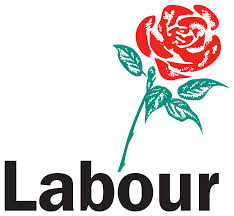A Labour Party advisory group, formed to make proposals to help UK High Streets, has put forward some novel suggestions for reform of the business rates system. The most surprising proposal is a suggestion that a percentage of business rates liability should be levied on the property owner, not just on the occupier. Currently business rates are levied entirely on the occupier, unless the property is vacant in which case the party liable for rates is the person “entitled to possession”.
The advisory group has also suggested that existing rateable values (set in 2010 and based on 2008 rental values) should be subject to a regional factor from 2015 until the next rating revaluation in 2017 and that revaluations from 2017 onwards should be carried out annually.
Another suggestion is that agricultural land and buildings should be made liable for business rates (they are presently exempt) in order to spread the burden and reduce the level of business rates. The group also recommends an independent “root and branch” review of the business rates system in order to establish changes for implementation from 2019.
The business rates system in the UK certainly has its problems, stemming principally from the very high level of tax, but I am not sure that these recommendations will help resolve those problems. Splitting liability between owner and occupier does not resolve the fundamental problem of too high a tax rate. Instead it creates a huge problem in identifying who is the “owner” – is it the freeholder, a long leaseholder, the subordinate leaseholder, or a combination of these?
The suggestion of reintroducing business rates for agriculture is likely to prove controversial, not least because of its potential effect on food prices. And the suggestion of a regional factor from 2015 to 2017 seems simply to be adding an arbitrary adjustment which is likely to be unfair to all ratepayers.
Nevertheless it is encouraging to see a political party at least attempting to address current problems with business rates. Potential reformers are all well advised to bear in mind the comments of Professor Brian Morgan’s Review Group in Wales which made the following insightful comment in its report in 2012: “We feel we must warn against this elevation of business rates as a cure-all for low levels of economic activity. In the report we stress that there are strict limits to what can be achieved by variations and exemptions within this area of local taxation.”
It will be interesting to see if any of the group’s suggestions form part of Labour Party policy for next year’s general election, and to see if the other parties come up with proposals of their own. My wish list would be: a re-setting of the level of the Uniform Business Rate multiplier; a reintroduction of some measure of Empty Property Rate relief; and a proper review of business rates reliefs and exemptions. Sadly, I am not sure these will appear in any policy documents!

